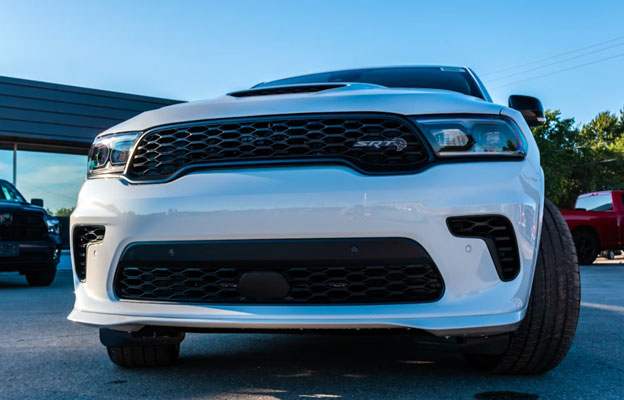Purchasing a used car can feel both exciting and stressful. The potential to save money and still own a dependable vehicle draws many buyers into the market, yet without preparation, the risks often outweigh the benefits. The difference between driving away with a reliable car and ending up with a financial burden often comes down to one factor: research. Careful investigation into a vehicle’s history, condition, and reputation helps a buyer avoid expensive repairs, make an informed choice, and protect their budget. A lack of research can leave buyers vulnerable to hidden problems, while those who invest time into gathering facts often secure years of safe driving.
Avoiding Costly Future Repairs
One of the most pressing reasons to research before buying a used car is the potential for hidden mechanical issues. Sellers may present a car in polished condition, yet the problems beneath the surface can lead to thousands of dollars in unexpected bills. A careful review of maintenance records, vehicle history reports, and independent inspections can help reveal whether the car has a history of accidents or recurring failures. Buyers comparing different Durango models might find variations in how certain engines hold up over time, and that knowledge can prevent them from investing in a car that will drain their wallet with constant trips to the mechanic. Research acts as a safeguard against falling into the trap of short-term savings that lead to long-term expenses.
Understanding Market Value
Beyond mechanical reliability, another crucial element is learning how much a car should realistically cost. The used car market often fluctuates based on demand, mileage, year, and condition. By researching price trends across dealerships, online platforms, and private sales, a buyer develops a clear sense of what a fair deal looks like. This step reduces the risk of overpaying and equips the buyer with leverage during negotiations. Without this knowledge, it becomes easy to fall for inflated prices that appear reasonable in the moment. A well-informed buyer can walk away from unfair offers and recognize genuine bargains.
Evaluating Reliability and Longevity
Different makes and models carry widely varying reputations for reliability, and understanding these differences can save a buyer from major headaches down the road. Some vehicles are celebrated for their ability to endure hundreds of thousands of miles with minimal issues, while others are known for recurring mechanical problems or costly component failures after only a few years of use. Researching professional reviews, long-term owner surveys, and consumer reliability reports provides a clearer picture of which cars consistently perform well over time.
For example, certain engines may require frequent repairs after a specific mileage, while others are renowned for their durability. Knowing these patterns allows a buyer to select a model that aligns with their expectations for lifespan and maintenance demands. Beyond mechanical aspects, reliability also encompasses how the car handles under different conditions, the quality of its materials, and the likelihood of unexpected malfunctions. A car that may appear appealing in advertisements or even in person can quickly become a source of stress if it is prone to transmission issues, electrical faults, or persistent leaks.
Checking Ownership Costs

A car’s sticker price tells only part of the financial story. True ownership costs include insurance premiums, fuel efficiency, routine maintenance, and the availability and price of replacement parts. Some vehicles may appear affordable at first glance, but carry hidden expenses that accumulate quickly over time. Researching these costs ahead of time allows buyers to make a more realistic assessment of the total financial commitment.
For example, cars with specialized or imported parts may require more expensive repairs, while certain models may have higher insurance rates due to safety ratings or theft statistics. Fuel economy is another key factor, particularly for buyers with long commutes or frequent road trips. Taking all of these elements into account helps buyers avoid unpleasant surprises after purchase and allows them to budget more accurately. Understanding the full spectrum of ownership costs ensures that the car remains a practical and sustainable choice rather than becoming a financial strain.
Inspecting Vehicle History
Every used car carries a history that directly impacts its current condition. Research through vehicle history reports reveals whether the car has been in accidents, experienced flood damage, or changed hands repeatedly. Multiple ownership transfers in a short period may indicate underlying problems, while a consistent maintenance history suggests attentive care. Inspection records and title checks protect buyers from cars that might look flawless but conceal serious past issues. A few minutes spent reading these reports can protect buyers from investing in a vehicle that is unsafe or overpriced.
Making Informed Negotiations
The final stage of purchasing a used car often comes down to negotiation, and having solid research behind you can make all the difference. Buyers who understand the fair market value of the car, know the common repair issues, and are aware of long-term costs enter discussions with confidence and authority. This knowledge allows them to ask informed questions about specific maintenance or past accidents and to challenge claims that seem questionable. If a vehicle’s history report indicates minor repairs, the buyer can use this information to request a price adjustment or to have certain repairs completed before finalizing the purchase.
Understanding typical depreciation patterns and resale values also strengthens a buyer’s position, showing sellers that the offer is grounded in realistic expectations. Without this preparation, negotiations often rely on the seller’s narrative, leaving buyers vulnerable to overpaying or accepting less favorable terms. Taking the time to gather detailed information gives buyers leverage, making it easier to negotiate repairs, warranties, or pricing adjustments, and increasing the likelihood of leaving with a reliable car at a fair price.
Purchasing a reliable used car from a Hyundai car dealer begins long before stepping onto a lot or browsing online listings. The real work takes place in the research phase, where buyers arm themselves with the knowledge needed to avoid hidden problems and unfair prices. Investigating maintenance records, vehicle histories, ownership costs, and reliability ratings transforms the process from a gamble into a calculated decision.
Those who dedicate time to thorough research protect themselves from unexpected repair bills, secure fair deals, and enjoy greater confidence in their purchase. By making research the foundation of the buying process, drivers give themselves the best chance at owning a car that will serve them well for years.









